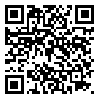Tue, Jan 27, 2026
| فارسی
Volume 31, Issue 1 (Continuously Updated 2025)
IJPCP 2025, 31(1): 0-0 |
Back to browse issues page
Download citation:
BibTeX | RIS | EndNote | Medlars | ProCite | Reference Manager | RefWorks
Send citation to:



BibTeX | RIS | EndNote | Medlars | ProCite | Reference Manager | RefWorks
Send citation to:
Razavi K, Poshtmashhadi M, Pourmohamadreza-Tajrishi M, Yarandi R B. Symptoms of Attention Deficit/Hyperactivity Disorder, Sleep Problems, and Executive Dysfunction, as Predictors of Sluggish Cognitive Tempo, in Children With High-Functioning Autism Spectrum Disorder. IJPCP 2025; 31 (1)
URL: http://ijpcp.iums.ac.ir/article-1-4317-en.html
URL: http://ijpcp.iums.ac.ir/article-1-4317-en.html
1- Department of Psychology and Education of Exceptional Children, Faculty of Behavioral Sciences and Mental Health, University of Social Welfare and Rehabilitation Sciences, Tehran, Iran.
2- Department of Psychology and Education of Exceptional Children, Faculty of Behavioral Sciences and Mental Health, University of Social Welfare and Rehabilitation Sciences, Tehran, Iran. ,mp.mashhadi@gmail.com
3- Psychosis Research Center, University of Social Welfare and Rehabilitation Sciences, Tehran, Iran. & Department of Biostatistics and Epidemiology, University of Social Welfare and Rehabilitation Sciences, Tehran, Iran.
2- Department of Psychology and Education of Exceptional Children, Faculty of Behavioral Sciences and Mental Health, University of Social Welfare and Rehabilitation Sciences, Tehran, Iran. ,
3- Psychosis Research Center, University of Social Welfare and Rehabilitation Sciences, Tehran, Iran. & Department of Biostatistics and Epidemiology, University of Social Welfare and Rehabilitation Sciences, Tehran, Iran.
Abstract: (562 Views)
Objectives Sluggish cognitive tempo (SCT) or cognitive disengagement syndrome (CDS) is often identified by symptoms such as lethargy and frequent daydreaming. It has been mainly investigated in the general population and in children with attention deficit/hyperactivity disorder (ADHD). There is scant research on the presence of SCT in individuals with autism spectrum disorder (ASD). The current study aimed to examine the symptoms of ADHD, sleep problems, and executive dysfunction as predictors of SCT in Iranian children with high-functioning ASD.
Methods This is a descriptive-correlational study. The participants were the parents of 116 children aged 6-12 with high-functioning ASD, who were selected from among 145 children in exceptional schools for children with autism in Tehran, Iran, in 2024, using convenience sampling. The parents who scored 55-70 in the Gilliam autism rating scale-third edition and had a score above the cut-off point on the SCT scale were included. They completed the online forms of the Swanson, Nolan, and Pelham rating scale (SNAP-IV), the children’s sleep habits questionnaire (CSHQ), and the coolidge personality and neuropsychological inventory for children (CPNI). Data were analyzed using the Shapiro-Wilk test, Pearson’s correlation test, and multiple regression analysis in SPSS software, version 27.
Results The correlation test results revealed a positive and significant relationship between SCT and inattention (r=0.489, P<0.01), but the SCT had no significant association with hyperactivity. Additionally, SCT was significantly correlated with decision-making/planning (r=0.414, P<0.01) and organizing (r=0.392, P< 0.01), as executive functions. However, it had no significant relationship with the response inhibition skill. The SCT had no significant association with sleep problems. The multiple regression analysis further indicated that the attention deficit was the only moderate predictor of SCT (β=0.489, P=0.001).
Conclusion The SCT has a relationship with attention deficit and the problems in decision-making/planning and organizing abilities of children with ASD. These findings can be valuable for clinical evaluation and treatment of ASD.
Methods This is a descriptive-correlational study. The participants were the parents of 116 children aged 6-12 with high-functioning ASD, who were selected from among 145 children in exceptional schools for children with autism in Tehran, Iran, in 2024, using convenience sampling. The parents who scored 55-70 in the Gilliam autism rating scale-third edition and had a score above the cut-off point on the SCT scale were included. They completed the online forms of the Swanson, Nolan, and Pelham rating scale (SNAP-IV), the children’s sleep habits questionnaire (CSHQ), and the coolidge personality and neuropsychological inventory for children (CPNI). Data were analyzed using the Shapiro-Wilk test, Pearson’s correlation test, and multiple regression analysis in SPSS software, version 27.
Results The correlation test results revealed a positive and significant relationship between SCT and inattention (r=0.489, P<0.01), but the SCT had no significant association with hyperactivity. Additionally, SCT was significantly correlated with decision-making/planning (r=0.414, P<0.01) and organizing (r=0.392, P< 0.01), as executive functions. However, it had no significant relationship with the response inhibition skill. The SCT had no significant association with sleep problems. The multiple regression analysis further indicated that the attention deficit was the only moderate predictor of SCT (β=0.489, P=0.001).
Conclusion The SCT has a relationship with attention deficit and the problems in decision-making/planning and organizing abilities of children with ASD. These findings can be valuable for clinical evaluation and treatment of ASD.
Keywords: Sluggish cognitive tempo (SCT), Cognitive disengagement syndrome (CDS), Autism spectrum disorder (ASD), Children, Attention deficit disorder/hyperactivity disorder, Sleep problems, Executive functions
Type of Study: Original Research |
Subject:
Psychiatry and Psychology
Received: 2024/09/15 | Accepted: 2025/05/26 | Published: 2025/08/1
Received: 2024/09/15 | Accepted: 2025/05/26 | Published: 2025/08/1
| Rights and permissions | |
 |
This work is licensed under a Creative Commons Attribution-NonCommercial 4.0 International License. |






